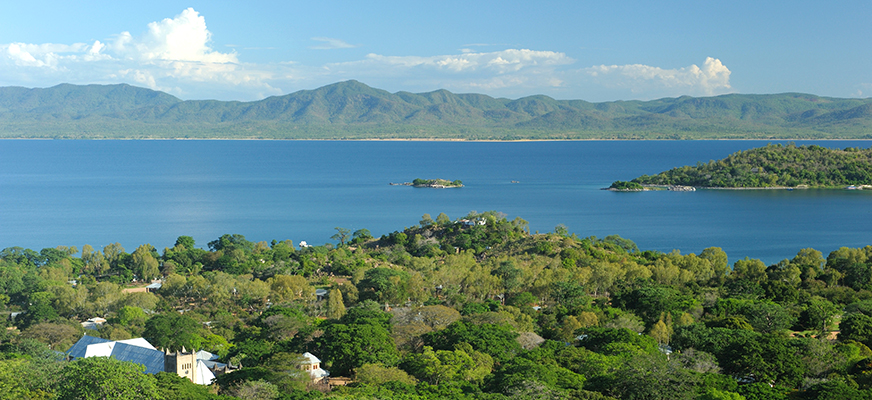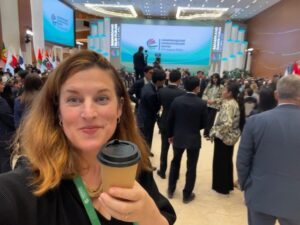- SIWI – Leading expert in water governance
- /
- Latest
- /
- Waves of fake news in transboundary waters
Waves of fake news in transboundary waters

Manipulation and targeted disinformation pose dangerous and growing problems for transboundary water cooperation. SIWI’s Dr Martina Klimes, Advisor on Water and Peace, explores the topic in a new article for the scientific research community Global Water Forum

Dr Martina Klimes is one of SIWI’s experts on transboundary water cooperation, with long experience working with governments to facilitate collaboration between countries with shared water resources. As an advisor and facilitator, she has experienced the growing challenge of deliberate disinformation, including fake news, which spiked her research interest in the topic.
“With the increasing urgency to improve understanding of how our future will be affected by climate change and the availability of natural resources, including water resources, such disinformation campaigns are able to flourish where there is relatively weak public knowledge about existing and future environmental challenges,” Klimes writes.
In the article, she notes how this can be used to manipulate the narrative of causes and impacts of climate change, including water-related issues, to achieve an actor’s own goals and to control decision-making processes of water governance.
“Public support for transboundary cooperation is prone to diminish, particularly in upstream countries, if perceptions are nourished that transboundary cooperation means giving up ‘our’ water resources to ‘others’, especially in the context of growing fear over water scarcity. These colluding forces thus make water diplomacy processes particularly vulnerable to disinformation campaigns,” Martina Klimes writes.
She explains how the situation is aggravated by the complex intersection of changing climates and increasing environmental challenges, a general lack of data availability, and weak communications from riparian governments to the general public regarding the benefits of transboundary water cooperation.
“Both state and non-state actors have resorted to malicious use of social media and closed communication platforms to spread disinformation. This can range from the propagation of specifically targeted campaigns spreading deliberate, polarizing misinformation to selective highlighting of aspects of a challenge in order to tilt public perceptions in one direction,” Klimes writes.
As examples, she describes how it can be more politically convenient for governments to attribute increasing water scarcity to impacts of climate change, rather than unsustainable water use or internal water mismanagement. In other cases, governments have amplified information about ongoing drought conditions to galvanize support for harder negotiation positions against upstream countries.
In light of this, Martina Klimes argues that riparian governments need to improve their scientific literacy. This would not only improve decision-making but also make governments less vulnerable to disinformation attacks. At the same time, she calls for specific capacity-building to make decision-makers and the general public more aware of how disinformation and manipulation campaigns work.
Here you can read the full article by Martina Klimes.
Most recent

TIARA in Zambia: Scaling resilient rainfed agriculture in the Zambezi Basin
- Agriculture and water
- Freshwater and ecosystems/biodiversity
- Resilience through water
- Water in landscapes
- Water and climate

Why climate action must integrate water
- Water and climate
- World Water Week
- Water governance

Swedish Water House Trendspotting 2026
- Swedish Water House

SIWI Reflections 2025: When Indigenous voices shape global water dialogue
- World Water Week
- Indigenous knowledge

Bridging Climate and Water for a Greener Central Asia

Reflections from World Water Week 2024: Unlocking Water Cooperation Solutions

Fostering cooperation at World Water Week’s Opening Ceremony
